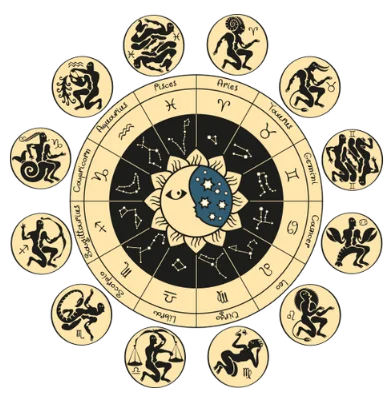Astrology is one of the world’s oldest sciences of time, destiny, and cosmic influence. It was not created in a single moment by one person, but developed over thousands of years across different civilizations. Below is the step-by-step history:
1. Ancient Origins (Babylonian Astrology)
- The first system of astrology began in Mesopotamia (Babylon) around 2000–3000 BCE.
- Babylonian priests observed the movements of planets and stars and linked them with natural events like floods, harvests, and wars.
- They created the zodiac of 12 signs, which became the foundation of modern astrology.
2. Egyptian Contribution
- Around 2000 BCE, Egyptians connected astrology with their calendar and deities.
- They believed stars influenced life after death and used astrological principles in temples and pyramids.
3. Greek System of Astrology
- In 4th century BCE, astrology spread to Greece after Alexander the Great conquered Babylon.
- Greek scholars (like Ptolemy) combined Babylonian star charts with mathematics and philosophy.
- They divided astrology into horoscopic astrology (personal horoscopes) and mundane astrology (world predictions).
4. Indian (Vedic / Jyotish) Astrology
- Astrology reached India around 1200 BCE, blending with the Vedic spiritual tradition.
- Known as Jyotish Shastra, it was considered the “eye of the Vedas.”
- Indian sages like Rishi Parashara and Varahamihira refined astrology into a precise science for karma, dharma, and future prediction.
5. Chinese Astrology
- Developed separately around 2000 BCE.
- Based on the lunar calendar, 12 animals of the zodiac, and yin-yang philosophy.
- Focused on cycles of time and cosmic energy rather than planetary positions.
6. Islamic & Medieval Contributions
- During the Islamic Golden Age (8th–12th century), scholars in Baghdad translated Greek and Indian texts into Arabic.
- Astrology spread to Europe, where it influenced medicine, agriculture, and royal courts.
7. Modern Western Astrology
- By the Renaissance (14th–17th century), astrology was deeply connected with astronomy.
- Later, astrology separated from modern science but remained a popular tool for personal guidance and psychology.
- Today, astrology exists in different forms: Western Astrology, Vedic Astrology, Chinese Astrology, and Ramal Jyotish.
✅ Conclusion: Astrology was not invented by one person, but is the result of thousands of years of observation and wisdom from Babylonians, Egyptians, Greeks, Indians, Chinese, and Arabs. It is a universal heritage that connects humans with cosmic energy.



 +91 8178243131
+91 8178243131  ds9731802@mail.com
ds9731802@mail.com